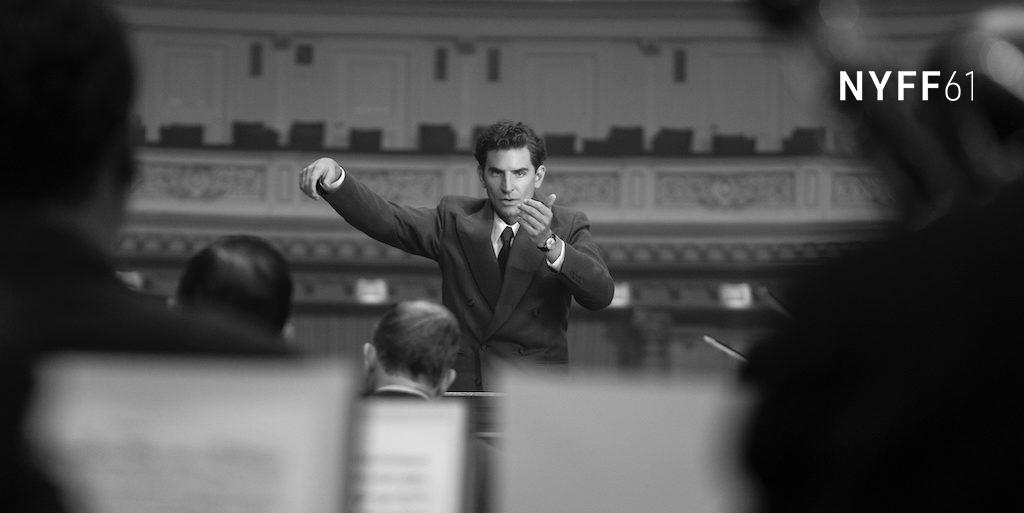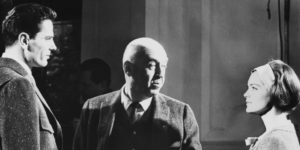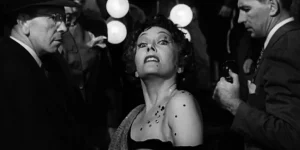Bradley Cooper cemented himself as an actor-director after taking us by surprise with the third remake of A Star is Born, a product that had little expectations and ended up being a resounding box office success that was also endorsed by film critics. Around those times word got around that he could be labeled as a natural successor to Clint Eastwood, after working with him in American Sniper and The Mule, and also perhaps for being labeled of filming with a certain tendency towards the classical. From the get go we presume that he must have learned something about the craft thanks to Eastwood. An experience Clint himself took from Don Siegel, or Tom Hanks from Jonathan Demme, et al.
These premature comparisons or classifications are frequent nowadays. Without going any further, with just one early hit, Shyamalan was also branded in magazine covers as a successor to Spielberg.
Cooper decided to move onto a magnanimous project, one that, in some way, he became obsessed about. He managed to convince directors such as Scorsese and Spielberg (the latter also interested in directing) to take action into the matter and, after confirming Cooper’s talent, decided to join in and produce it. He snuck into as many concerts as possible in a span of five years at the Lincoln Center, for the fascination and the learning of gestures and maneuvers of the conductors. He did his homework and now took the exam.
Cooper’s obsession with the project contrasts with what sometimes in Argentina tend to suggest about actors Victor Laplace and Esther Goris, who continue to believe they are Perón and Evita long after having portrayed them. Cooper in Maestro indefectibly becomes Leonard Bernstein. His characterization is a carbon copy from the first minute, in which the conductor is interviewed in his elder years, with layers of make-up such as those used in other periods of film history when CGI did not exist. Cooper not only creates a film about a real character; he directs himself and leaves room for his self-celebration.
Maestro takes the story of the American composer and conductor par excellence and adds shades and situations that involve him completely, as it turns out to be in his beginnings or at times when he is upstaged by his wife. One of the axes is his marriage to Felicia (Carey Mulligan), an actress with which he builds the foundation of a fully understood marriage. Perhaps for the time period, women take a role of accompanying the mogul that turned out to be Bernstein after rising to replace conductor Bruno Walter from the New York Philharmonic at Carnegie Hall, on account of the lead catching the flu. From that moment on is where Bernstein acquired notoriety and never stopped. He became what he is known for today: a master, quasi-genius. But like many geniuses; his pretensions, ego and ill temper put him at risk and his wife and children in a back seat, something Cooper wants to stress out in broad strokes due to the current times.
The film delves in other facets of Bernstein, his parallel life regarding his sexuality, partially endorsed by his wife and approved by his inner circle, something known all around. The film does not cease to navigate through melodrama, the alternation of musical numbers, the intonation of some melody of his, such as the film West Side Story, or the mention of his contributions to Elia Kazan’s On the Waterfront and the Broadway musical On the Town.
However, Maestro does have a big problem. Among the so many facets Cooper presents, in most he does not inquire or internalize enough. For example, the representation of the relationship with his children is a truncated one; there is not even a hint that allows us to feel there is a healthy bond between Bernstein and his children, even if he sits down to talk with them. Between the ups and downs, to corner Bernstein’s story with and without Felicia also leaves a hole, which only dares to show the loneliness in which she found herself enveloped into, with her support, consent and even annoyance, which culminates in sickness. There is where the film gets near instances short of being emotional low blows. There are directing choices that annul great moments, such as Cooper’s Oscar moment conducting, unstoppable, a scene running for dozens of minutes without any cuts for which he learned every mannerism from the maestro. A bombastic moment and the finest offered by the film.
P.S.: Although the film had its world premiere at the Venice International Film Festival, it was at the New York Film Festival where it was exhibited at the gala of the “Spotlight” section at Geffen Hall in Lincoln Center, the very same concert hall inaugurated by Leonard Bernstein when he conducted the New York Philharmonic. A Dolby Vision projection system was set especially for this screening, along with a Dolby Atmos sound system.
![]()
Director: Bradley Cooper. Writing Credits: Bradley Cooper, Josh Singer. Cast: Bradley Cooper, Carey Mulligan, Matt Bomer, Maya Hawke, Sarah Silverman. Producers: Fred Berner, Bradley Cooper, Amy Durning, Kristie Macosko Krieger, Martin Scorsese, Steven Spielberg. Runtime: 129 minutes.













